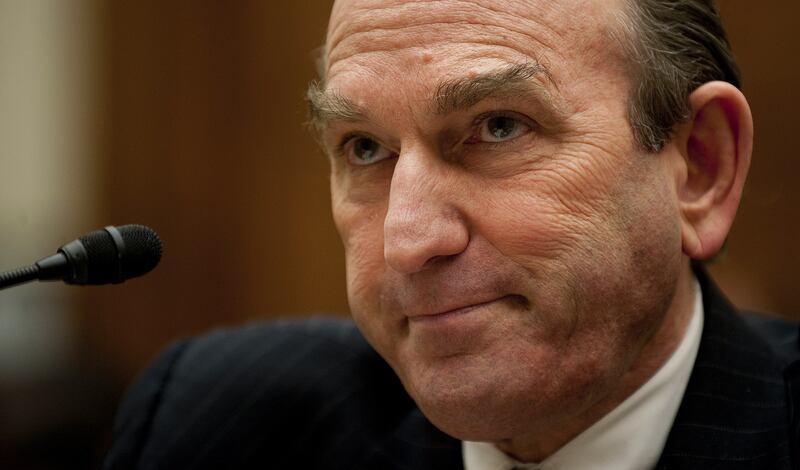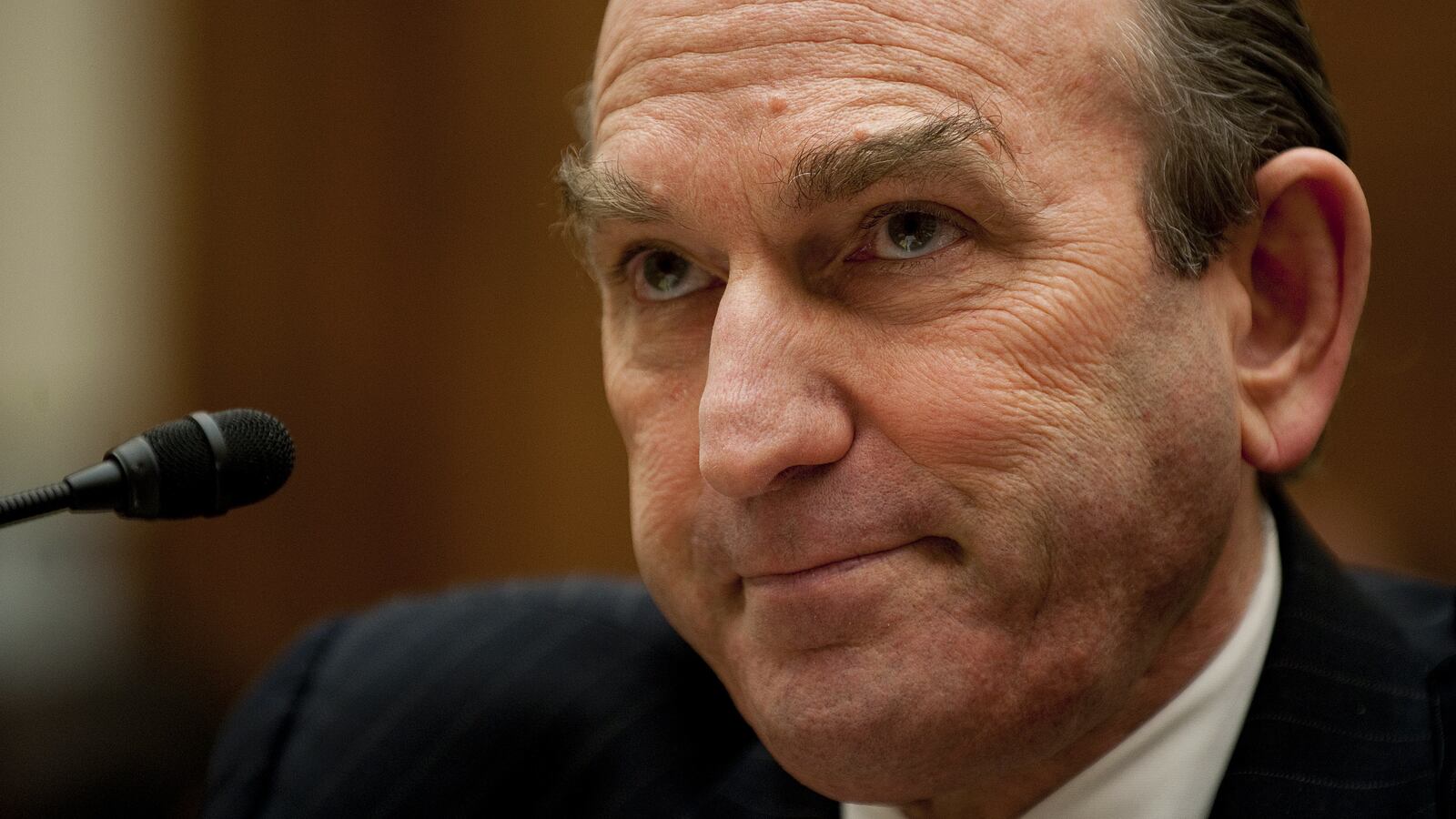Last we heard from Elliott Abrams, he was busy taking to print and the airwaves to call the then-nominee to be Defense Secretary an anti-Semite. To make the charge against Chuck Hagel, who was eventually confirmed, Abrams cited Jewish activists from the former Senator's home state of Nebraska. But there was a problem: while these Jewish activists didn't support Hagel for defense chief, nor did they think he was an anti-Semite. Abrams, though, presumed to speak for Nebraska Jews—all Nebraska Jews—even though precisely zero members of the state's Jewish community were on record agreeing with accusation.

Now Abrams's at it again. Yesterday, Abrams wrote on the blog of the Weekly Standard about Secretary of State John Kerry's meeting with American Jewish leaders to push the nascent peace process between the Israelis and the Palestinians. Abrams is a skeptic, which he is well within his rights to be (a position this writer shares). But Abrams again presumed to speak for American Jews, this time the leaders of the country's most powerful national organizations.
Abrams cited reports that Kerry told the American Jewish organizational leaders that time to make peace with the Palestinians was running out. Abrams retorted: "Few if any of them"—them being the American Jewish leaders—"will have been persuaded by Kerry's arguments." Abrams mentioned a point Kerry reportedly made that state-level opponents of Israel were today weak (an undoubtable truth in the case of Syria, for example). "He may believe this," Abrams responded, "but none of them do." Abrams against harnessed that monolith them, the American Jewish leaders, whom Abrams presumed to speak for.There's a problem: at least one of them doesn't agree with Abrams. According to the JTA, one of the groups at the meeting was the American Jewish Committee, which almost surely means the group's executive director David Harris. On Sunday, Harris published a piece on the Huffington Post not only vociferously endorsing the talks, but underscoring the same dynamics that animate Kerry's peace push—including his call that time is running out (with a hat-tip to Tamara Cofman Wittes). Harris wrote:
In other words, would Israel, assuming it wanted to, be able to retain control of the West Bank well into the distant future without taking account of some serious consequences? For Israel to remain a democratic and Jewish state, it is in Israel's national interest to seek a way to disentangle itself from rule over as many Palestinians as possible.
This is becoming a pattern: as with the Hagel fight, American neoconservatives have a tendency to speak for American Jews, writ large. One only needs to consult the pages of Commentary or the right-wing blog the Free Beacon too see it in action. But whereas neoconservatives overwhelming roam in Republican partisan circles, only 16 percent of American Jews, according to an annual AJC survey, identify themselves as Republicans; 55 percent identify as Democrats. Whereas neoconservatives are clearly conservatives, less than a fifth of American Jews identify with that side of the political spectrum, and nearly half identify as liberals. (A massive 2008 Pew survey found that less than a quarter of all American Jews are Republican or lean that way, whereas two-thirds consider themselves Democrat or lean toward that party.)
To be sure, some in the Jewish community do share the right-wing bent of neoconservatives (some neoconservatives are themselves Jewish). And the American Jewish establishment has been known to lean right, especially on Israel matters. AIPAC, for example, has been bearish on the peace process thus far. And yet, as with the Hagel case, the unanimity Abrams seeks to portray is a myth; his presumption to speak for American Jewish leaders without any quotes or sourcing remains a transgression of scholarly virtues and intellectual honesty.





